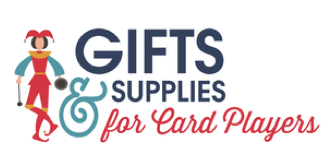How to Take Your Poker Skills to the Next Level
Have you recently made the switch to playing “serious poker” and you feel out of your depth? Or maybe you’ve been playing for some time but are struggling to turn consistent wins regularly. If you are either, this article is for you.
Firstly, know that you’re not alone feeling clueless or only just breaking even. A large percentage of poker players are in these exact positions, and they’re something that even the best pros have had to deal with along their career paths. As a traditional card game, poker can be exceptionally challenging to master – but that’s all part of its appeal as a competitive discipline.
Often, making a few small adjustments to your poker strategy can be all that’s required to take your game from mediocre to amazing. But before you can implement any changes you need to figure out where your existing way of playing is going wrong.
Are you playing worse than you are?
Let’s face it, the fact that you’ve been around poker tables long enough to want to improve and you haven’t been completely cleaned out yet indicates that you’re probably a decent poker player. After all, by now you’ve got a decent grasp of the rules of the game and a basic playing strategy that’s seen you through until this point.
It’s also highly likely that you’re playing worse than you actually are. Take a look at the following examples, if you recognise yourself in some of them, you’re definitely getting in your own way at the poker table.
Example 1: Player A knows how important it is to get an idea of their opponents’ hands, however, they’re fixated on specific hands because that’s what “their gut is telling them”.
Example 2: Player B’s been dealt their favourite starting hand but they’re stubbornly holding on to it even when making bad plays.
Example 3: On the other end of the scale, Player C bulldozes through their games by playing every hand they’re dealt.
Example 4: Despite coming out of their initial poker learning curve some months back, Player D is still at the table with the best players in the room, yet, weirdly, they’re not even breaking even.
Becoming a better player
Now you’ve got a better idea of the level you’re playing at and identified a few of those critical mistakes that are holding back your progress in poker, it’s time to do something about it.
To start with, you need to establish a good position at the table – no, not the table with the pro players, but the one with players who are at the same level or worse than you.
When you first started playing poker, you probably didn’t pay that much attention to where you sat during the game. After all, for most beginners, the emphasis at the start is on getting used to the rules and building up their experience of actual gameplay.
As a more advanced player, however, you need to take a more nuanced approach to your strategy, which is where understanding table positions comes into play. Whilst it may not be everything in a poker game, positioning is still nevertheless of paramount importance. This is especially true when it comes to no-limit or pot-limit games, so-called “flop games” (think no-limit Hold’em) where individual bets tend to increase as the game progresses. Playing from a later position can give you the edge in a game and will put extra pressure on your opponents.
In Texas Hold’em rules, the best seat at the table is the button. This is where you can exert the most pressure on your opponents and you’re in the best seat to make informed decisions on how much to bet.
Deciding on a style of play will also have a transformative effect on your game. Typically, there are four recognised styles: Tight, Loose, Aggressive and Passive. Whilst it’s good to switch gears and intuitively change up your style mid-game, you also want to avoid making too many changes too often.
Try settling into a rhythm where you play a tight-aggressive game that focuses on playing a few solid hands, opening pots and making big bets when you’re in the position to do so. Playing good hands before the flop teaches you discipline at the table and helps you stay focused, game after game.
As far as hands go, when it comes to your opponents, think in terms of ranges, not specific hands. Truly great players know that their opponents can have entire ranges of hands. So, instead of trying to figure out a single hand, they’ll instead focus on identifying the frequencies of ranges and make the best plays accordingly.





